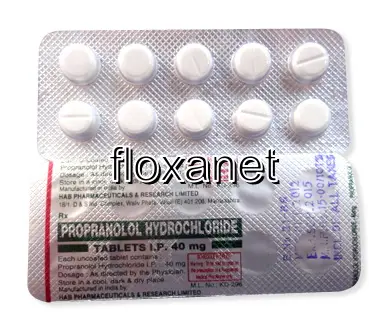| Package | Dosage | Price | Price per Dose | |
|---|---|---|---|---|
| Dosage: 10mg | ||||
| 360 pill | 10mg | $199.86 | $0.56 | |
| 270 pill | 10mg | $169.32 | $0.62 | |
| 180 pill | 10mg | $137.40 | $0.76 | |
| 120 pill | 10mg | $105.47 | $0.87 | |
| 90 pill | 10mg | $88.82 | $0.99 | |
| 60 pill | 10mg | $63.83 | $1.07 | |
| 30 pill | 10mg | $33.30 | $1.11 | |
| Dosage: 20mg | ||||
| 360 pill | 20mg | $240.11 | $0.67 | |
| 270 pill | 20mg | $187.37 | $0.69 | |
| 180 pill | 20mg | $140.17 | $0.78 | |
| 120 pill | 20mg | $98.53 | $0.82 | |
| 90 pill | 20mg | $83.27 | $0.93 | |
| 60 pill | 20mg | $59.67 | $1.00 | |
| 30 pill | 20mg | $31.91 | $1.07 | |
| Dosage: 40mg | ||||
| 360 pill | 40mg | $244.27 | $0.68 | |
| 270 pill | 40mg | $206.80 | $0.76 | |
| 180 pill | 40mg | $149.89 | $0.83 | |
| 120 pill | 40mg | $109.64 | $0.92 | |
| 90 pill | 40mg | $84.65 | $0.94 | |
| 60 pill | 40mg | $66.61 | $1.11 | |
| 30 pill | 40mg | $41.63 | $1.39 | |
| Dosage: 80mg | ||||
| 360 pill | 80mg | $305.35 | $0.85 | |
| 270 pill | 80mg | $231.78 | $0.86 | |
| 180 pill | 80mg | $156.83 | $0.87 | |
| 90 pill | 80mg | $84.65 | $0.94 | |
| 60 pill | 80mg | $62.45 | $1.04 | |

Propranolol Description
Overview of Propranolol
Propranolol is a widely used medication belonging to the class of drugs known as beta-blockers. It is primarily prescribed to manage cardiovascular conditions, including high blood pressure, angina, and certain types of arrhythmias. Its popularity stems from its effectiveness in controlling heart rate and reducing blood pressure, helping to prevent heart-related complications. Besides its cardiac uses, propranolol is also prescribed off-label for other conditions such as anxiety, migraine prevention, and certain tremors.
Mechanism of Action
This medication works by blocking the action of certain natural chemicals in the body, such as adrenaline and noradrenaline, on beta-adrenergic receptors. By inhibiting these chemicals, propranolol decreases the heart rate, reduces the force of heart contractions, and lowers blood pressure. This helps lessen the workload on the heart and improves blood flow. Its ability to cross the blood-brain barrier also allows it to affect the central nervous system, which explains its use in managing anxiety and preventing migraines.
Usage and Dosage
Propranolol is usually administered orally in the form of tablets. The dosage prescribed can vary depending on the condition being treated, the patient's response, and their overall health profile. It is often started at a low dose to minimize side effects, then gradually increased as needed. For high blood pressure, typical doses may range from 40 mg to 240 mg daily, divided into multiple doses. When used for migraine prevention or anxiety, lower doses might be sufficient. It is essential to follow the healthcare provider’s directions carefully and not to adjust the dose without consulting them.
Potential Benefits
Many patients report positive outcomes with propranolol. It effectively lowers blood pressure, reducing the risk of stroke, heart attack, and other cardiovascular events. Its ability to control abnormal heart rhythms can prevent episodes of palpitations and deterioration of heart function. When used for migraines, patients often experience a significant reduction in the frequency and severity of attacks. Additionally, its calming effects on the nervous system make it beneficial for managing performance anxiety or social phobia.
Possible Side Effects
Like all medications, propranolol can cause side effects. Common reactions include tiredness, dizziness, cold extremities, and gastrointestinal discomfort. Some patients may experience sleep disturbances or vivid dreams. In rare cases, it can cause a slow heart rate, low blood pressure, or breathing difficulties, especially in individuals with respiratory conditions such as asthma. Because of its effect on the cardiovascular and nervous systems, it is vital to monitor patients regularly and report any adverse symptoms to a healthcare provider promptly.
Precautions and Considerations
Before starting propranolol, a full medical history should be taken. This is especially important for patients with asthma, diabetes, or circulatory problems, as beta-blockers may worsen these conditions. It is crucial not to suddenly stop taking propranolol, as this may lead to a sudden increase in blood pressure or chest pain. Tapering the dose gradually under medical supervision is recommended. Pregnant and breastfeeding women should discuss with their healthcare provider before use, as safety data is limited. Patients should also inform their doctor about any other medications they are taking to avoid harmful interactions.
Conclusion
Propranolol remains a cornerstone in the management of various cardiovascular conditions and other off-label uses. Its effectiveness in reducing the workload on the heart and managing symptoms associated with anxiety and migraines makes it a versatile medication. Proper dosing, careful monitoring, and adherence to medical advice are essential for maximizing benefits and minimizing risks. As with any medication, individual response varies, and ongoing communication with a healthcare provider is key to ensuring safe and effective treatment.
See Also

